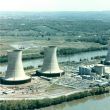Adapting to the 21st century
By Rajiv Nayan, December 31, 2012
In the years since it was established in 1975, the Nuclear Suppliers Group (NSG) has emerged as a comprehensive multilateral export-control regime for nuclear materials and technology. Another regime, the Zangger Committee, held its first meeting four years before the NSG came into existence, but it is the NSG that has demonstrated greater dynamism and has emerged as more relevant since the end of the Cold War.
The Zangger Committee was established to help signatories to the Nuclear Non-Proliferation Treaty (NPT) understand the technical issues related to transfers of nuclear materials and technology. But the committee did not include countries that were not signatories to the treaty; one such nation was France. The NSG, established as a complement to the committee, brought nations like France into the control regime. (France would accede to the treaty and also join the Zangger Committee in 1992).
In my own country of India, many people believed that the entire idea of bringing France into the nuclear control framework was to neutralize the power of Gaullism in France's economic and technology policies abroad. That is, France had often resisted the policies toward the developing world of other Western nations, and Paris's Gaullist impulses could be co-opted by bringing France into the NSG. In India, the Zangger Committee and the NSG were both understood as regimes for denying technology to the developing world — as undesirable barricades that blocked the flow of goods and technology to countries pursuing economic development through peaceful nuclear energy programs. A segment of Indian government and civil society continues to understand the systems in this fashion.
In the club. The nature of any organization's membership reflects that organization's value system. And for any body or organizational entity — whether national or international, formal or informal, large or small — the nature of its membership is important to its effectiveness and efficacy. When an organization is international, not to mention informal like the NSG, the group's objectives must be internationally acceptable. Therefore, in order for the NSG's decision making to gain international acceptance, the regime's membership must be representative of the world community.
Interestingly, though the NSG was barely active if not dormant during much of the Cold War, its membership grew. By 1991, membership had grown to 27 from the original seven, with some Eastern European countries among the new additions. Today, the NSG has 46 members, but it nonetheless needs to diversify its stakeholders. The group's membership manifests a distinct bias toward the developed world in general and Europe in particular. Well over 30 members are European: Not all of these belong to the European Union, but only a few of them are classified as developing by the World Bank. Beyond Europe, the developed world gains further representation from Australia, Canada, New Zealand, and the United States. Among Asia's four NSG members — China, Japan, Kazakhstan, and South Korea — only two are developing nations. Meanwhile, Latin America is represented only by Argentina and Brazil, and Africa by South Africa alone.
Many observers have predicted that the 21st century will prove to be the Asian century. Though only a few Asian countries qualify as developed today, Asia, with its rising powers, is the continent that promises to shape a new global order. Moreover, Asia is a continent with large, fast-growing economies that will demand a great deal of energy — including nuclear energy.
Since the 1990s, nuclear energy's expansion has been noticeable in Asia and developing countries elsewhere. A recent report by the International Atomic Energy Agency (IAEA) notes that "of the 29 countries considering or planning for nuclear power in 2012, 10 are from the Asia and the Pacific region, 10 are from the Africa region, seven are in Europe (mostly Eastern Europe), and two are in Latin America." Another IAEA publication, from 2008, reports that "a total of 20 of the 35 plants under construction are in Asia, while 28 of the last 39 plants connected to the grid are also in Asia." Since 2008, Asian countries have ordered additional reactors and connected a few more to the grid. All this clearly argues for greater Asian participation in the nuclear export-control regime.
Old battles, new challenges. In the early days of the NSG's membership expansion, the countries that produced nuclear goods and services, and the countries that decided which nations gained access to those goods and services, were one and the same. But many countries with a limited role in nuclear commerce have since gained membership in the group. Meanwhile, several countries that are capable of contributing to the objectives of the NSG have been left out of the group and even subjected to stringent rules for nuclear transactions. Today, several countries that have mastered the nuclear fuel cycle are not members of the group. And certain other countries, which may not have mastered the entire nuclear fuel cycle but still possess resources or expertise valuable to one or more stages of the fuel cycle, have not gained membership either.
Going forward, the NSG will have to reflect emerging trends in the global nuclear power industry. New producers will have to become controllers: Otherwise, the group might be undermined, and its ability to accomplish its objectives will be severely constrained. The NSG will have to make a decision about what it wants to be in the 21st century. Does it want to fight old battles, or meet new challenges?
Developing countries have long complained that multilateral export control regimes stunt their economic development. Today, the NSG's control list has become almost universal. Much of the international community has developed an understanding that peaceful nuclear development and responsible control of nuclear technology and materials must go hand in hand; any imbalance between these two imperatives will imperil the development of civilian nuclear energy. The NSG would also do well to start striking a better balance between economic development and nuclear controls. The group should send a signal that it does not oppose development of peaceful nuclear energy, even as it remains strongly opposed to proliferation and proliferation networks.
The NSG will have to identify which countries are its partners, and which are the focuses of its nonproliferation efforts. In 2004, the group made a mistake by extending membership to China. True, China is a rising economic power that has grand plans for expanding its nuclear energy capability, and Beijing has joined all the key nonproliferation arrangements. But China's nonproliferation record is dubious: It is suspected by many of exporting technologies related to weapons to mass destruction. Meanwhile, and unfortunately, the NSG has not partnered with certain countries, such as India, that share its objectives, abide by international nonproliferation norms, and possess strong capabilities in civilian nuclear energy.
Share: [addthis tool="addthis_inline_share_toolbox"]














